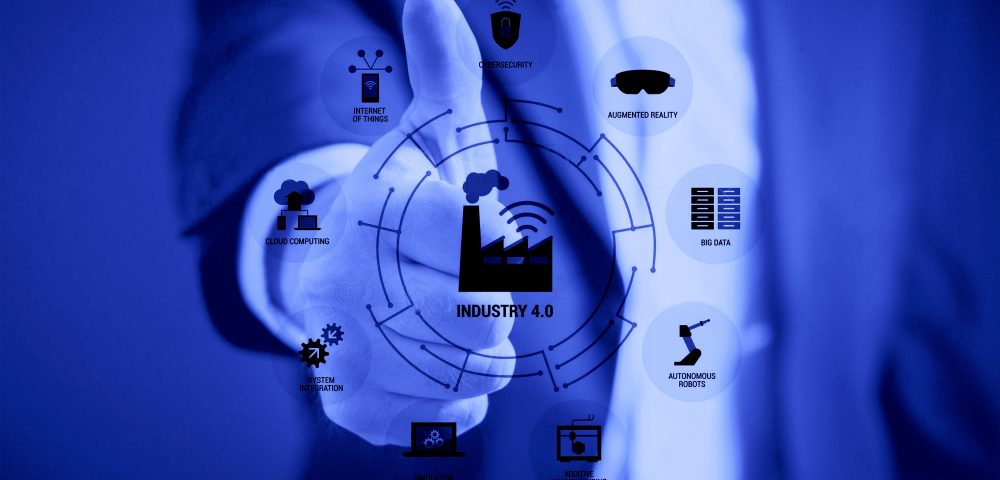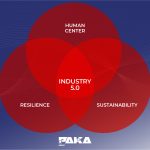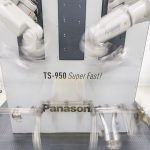With the third Industrial Revolution, automation began to appear in factories, with increasingly advanced and intelligent machines. If a few years ago this concept was part of our imagination, today it is a fundamental part of the industrial process in companies.
Nowadays, with an increasingly competitive market and an ever more demanding consumer, companies are practically challenged to adapt their production process, using more advanced technologies, contributing to greater sustainability and optimization.
With this came a new industrial revolution, the so-called industry 4.0.This term first appeared in Germany, introduced by the German government in 2011, driven by the emergence of innovative technologies that have contributed to the evolution of industrial production processes, resulting in profound changes in both production systems and companies’ businesses.
Industrial automation in companies will transform people’s lives, bringing social and economic changes and an impact on jobs in the near future.
In the future, the production process of most companies will be controlled by robotic systems, which will be able to cooperate, communicate and monitor as if they were human.
One of the questions that arises on this subject, is whether human beings will lose their jobs if the workforce is replaced by robotic equipment. This is a topic that generates many different opinions, but without a doubt we can say that replacing human hands with automated processes could lead to new jobs.
A study carried out by the CIP (Confederação Empresarial de Portugal), in partnership with the McKinsey Global Institute and Nova School of Business and Economicsin his report on the future of work in Portugal, he says that automation in companies could contribute to the loss of 1.1 million jobs, but on the other hand could create between 600,000 and 1.1 million new jobs.
Experts in the field argue that, there will undoubtedly be a change in the way we work. As with all industrial revolutions throughout history, there have been jobs that have been replaced by others.
Why is automation important in industry?
Automation is essential to the evolution of industrial processes, bringing numerous advantages to the production system, such as:
. greater control and improvement of processes,
. production flexibility,
. improves human security conditions,
. reduces the effort and intervention of human labor,
. reduces costs with lower consumption of energy and/or raw materials,
. responds to the particular needs of each company,
. increased competitiveness in the face of an increasingly demanding market.
The so-called smart factories will use a set of technologies such as Artificial Intelligence (AI), Robotics, Big Data (IOT), Data Protection, which allow them to operate automatically, being able to process small and/or repetitive tasks, foreseeing and avoiding technical failures that could jeopardize the production process.
From an employment point of view, new technical positions will be needed with new interdisciplinary skills. The presence of these professionals will serve to monitor the entire process, carrying out the programmed management of the robotic equipment, and here training will be extremely important.
Any innovation in a company’s production process requires some transformation, but in a way it will bring immense advantages that have already been described above.
The presence of robots is already a reality in industry and has changed the way we deal with the production process. One of the biggest challenges that many companies may face is their openness to implementing new technologies for their business, and their commitment to training their human resources.
It is certain that the presence of robots in the industrial context will increase production capacity, making it possible to design products with higher quality, at lower cost and with a faster response capacity.
In terms of human resources, they will be able to create more qualified jobs, with greater security and less physical strain.
From an economic point of view, Industry 4.0 will bring new opportunities for companies, promoting the emergence of new business models. By integrating and improving new technologies, it can contribute to market positioning and greater growth for companies.
Bibliography:
https://www.dinheirovivo.pt/opiniao/a-automacao-e-o-futuro-do-trabalho-em-portugal/













